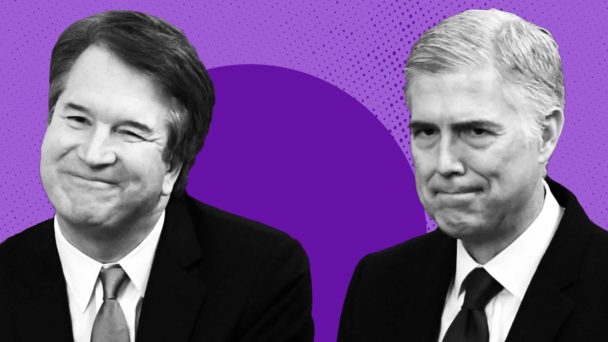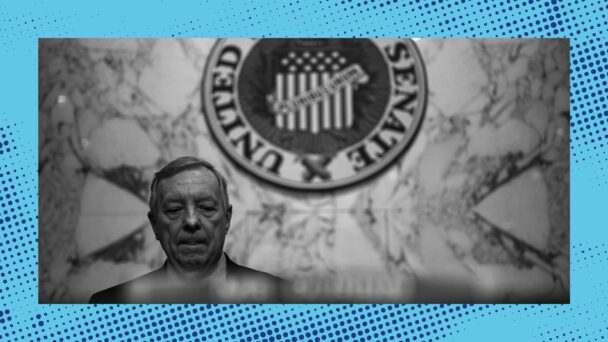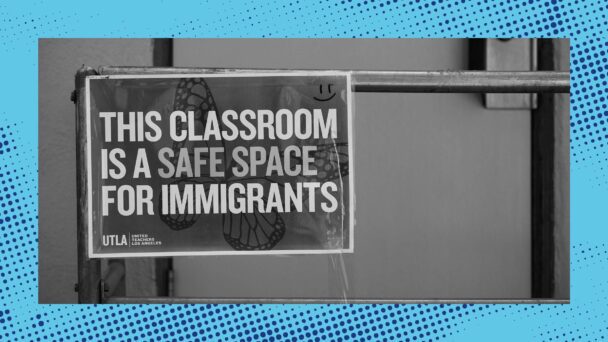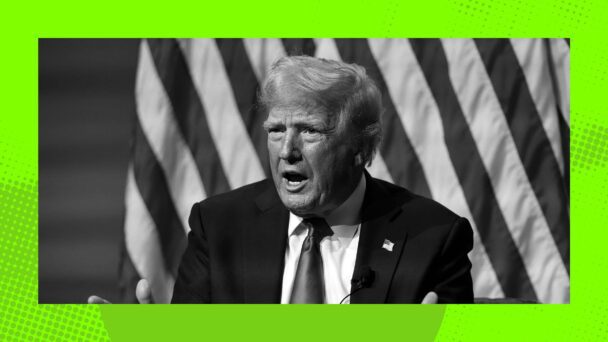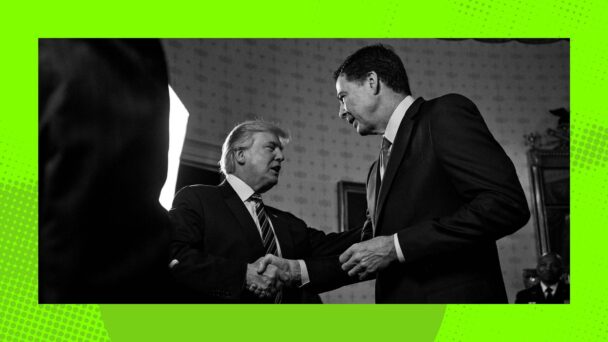The Department of Justice unexpectedly put two federal prosecutors on leave Wednesday morning, hours after they filed a sentencing memorandum that made a passing reference to the people who perpetrated the January 6, 2021 insurrection as a “mob of rioters.” The directive, according to MSNBC’s Ken Dilanian, came straight from the White House. Two different prosecutors have now filed a revised version of the memo without the offending passage.
Assistant U.S. Attorneys Carlos Valdivia and Samuel White were prosecuting Taylor Taranto, who tussled with the police during the Capitol riot almost five years ago. But they were not prosecuting Taranto for anything related to his actions on January 6, as he, like everyone else involved in January 6, received a blanket pardon from President Donald Trump on his first day back in the White House.
Instead, Valdivia and White were prosecuting Taranto for his actions on June 28, 2023, when he posted livestream videos from his van indicating that he would drive a car bomb into the National Institute of Standards and Technology, a federal agency in Gaithersburg, Maryland. The next day, Taranto livestreamed himself driving around President Barack Obama’s neighborhood with a semiautomatic rifle equipped with a stabilizing brace, along with a pistol, hundreds of rounds of ammunition, and a machete.
On May 20, 2025, a federal judge found Taranto guilty of two counts of carrying a pistol without a license, one count of unlawful possession of ammunition, and one count of false information and hoaxes. And on Tuesday, Valdivia and White filed a memo requesting that the judge impose a sentence of 27 months in prison. In it, they situated Taranto’s crimes against a “backdrop of political violence” by briefly describing his involvement in the insurrection.
“On January 6, 2021, thousands of people comprising a mob of rioters attacked the U.S. Capitol while a joint session of Congress met to certify the results of the 2020 presidential election,” they wrote. “Taranto was accused of participating in the riot in Washington, D.C., by entering the U.S. Capitol Building.” But after that single paragraph, the rest of their memo relates to Taranto’s actions afterwards—promoting election-related conspiracy theories, posting videos suggesting he rigged his van with an explosive device, and casing Obama’s house while saying things like, “Gotta get the shot, stop at nothing to get the shot.”
This is not the only way the second sentencing memo strains to avoid any mention of Trump’s entanglement in Taranto’s offenses. Version one, filed by Valdivia and White, explains that Taranto knew Obama’s whereabouts because Trump posted Obama’s address online earlier that day. Version two, filed after their dismissal, omits that detail, stating only that Taranto believed he could gain access to Obama’s residence, but leaving the basis of that belief unclear.
Basically, Valdivia and White mentioned the insurrection in their sentencing memo in order to do one thing: show that this isn’t the first time Taranto has tried to intimidate elected officials. They were just doing their job—and just telling the truth. But that is not what Trump hires people to do. In the Trump administration, your job is to embrace the president’s narrative. If reality conflicts with Trump’s worldview, then even brief, mundane references to reality are off-limits.
Perhaps the starkest example of this phenomenon is the extent to which Trump’s judicial nominees take pains to avoid answering basic factual questions about the insurrection. When asked if a violent mob attacked the Capitol on January 6, then-nominee, now-Judge Josh Divine responded that “the President has issued pardons to individuals involved,” which is not what anyone asked him. Judge Cristian Stevens said it would be “inappropriate” for him to comment on such a “highly contested political issue.” Judge Maria Lanahan just said she was “not present at the U.S. Capitol at the time” and lacks “personal knowledge of the details,” which is kind of like saying you don’t know if the Titanic sank because you were not present at the iceberg.
The original prosecutors on Taranto’s case were not on some anti-Trump crusade. They were prosecuting someone for political violence in the midst of a wave of political violence. They were being straightforward about facts. This shouldn’t be controversial, let alone enough to get you locked out of your office. But it is, because getting and keeping a job in Trump’s orbit means never saying anything he doesn’t want to hear.

